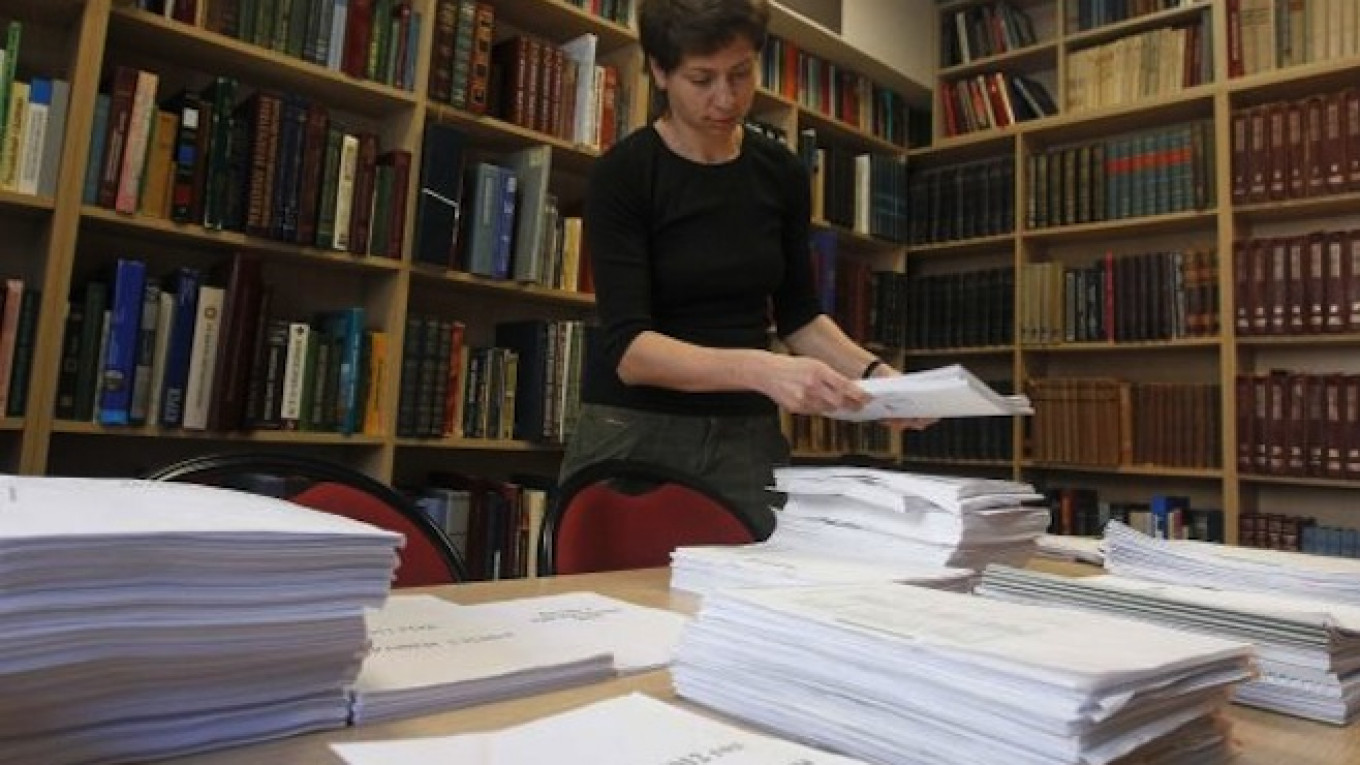Russia has at least 50 "political prisoners," including a man who has been charged with inciting ethnic hatred for posting photographs documenting the consequences of Russian "military incursions," according to a new list compiled by the country's leading human rights group Memorial.
"This list is by no means exhaustive," Memorial said in a statement Thursday, adding that the 50 people on the list are those who are currently held in custody or under house arrest and who meet the criteria set by the Parliamentary Assembly of the Council of Europe, or PACE, for designation as political prisoners.
Since the publication of Memorial's previous list last October, which included 46 people, 10 names have been removed from the list, and 14 others have been added, the statement said.
Those who are no longer on the list include opposition leader Alexei Navalny — whose was released from house arrest after a court gave him a suspended prison sentence in December — and other activists who have served out their sentences or have been released on parole.
Also no longer on the list is the name of Yevgeny Afanasyev, a former technology university professor who died in prison at age 62 while serving a 12 1/2-year sentence. Afanasyev was convicted during a closed-door hearing on charges of selling a Chinese spy classified information about the Bulava rocket system.
Since the publication of the previous list, "none of the political prisoners has been found not guilty, amnestied or pardoned," Memorial said in a statement.
The 14 new names on the lists include Oleg Navalny, who was sentenced to prison at the same trial in which his opposition activist brother Alexey received a suspended term, and Yekaterina Kharebava, who was sentenced to six years in prison in 2013 for sending a text message to a Georgian friend about the movement of Russian troops she observed during the 2008 Russia-Georgia war, Memorial said.
Another new name on the list is that of Rafis Kashapov, who is in jail awaiting trial on charges of inciting ethnic hatred for a series of his posts on social networks criticizing Russia's annexation of Crimea from Ukraine.
One of the publications listed in the case as evidence against him is titled "Where Russia is, there is death and tears," and is made up of a collection of photographs showing the "consequences of Russian military incursion or the actions of pro-Russian forces in the countries of the former U.S.S.R.," Memorial said. Other posts Kashapov published compared Russian President Vladimir Putin to Nazi leader Adolf Hitler and called for protest rallies.
A Message from The Moscow Times:
Dear readers,
We are facing unprecedented challenges. Russia's Prosecutor General's Office has designated The Moscow Times as an "undesirable" organization, criminalizing our work and putting our staff at risk of prosecution. This follows our earlier unjust labeling as a "foreign agent."
These actions are direct attempts to silence independent journalism in Russia. The authorities claim our work "discredits the decisions of the Russian leadership." We see things differently: we strive to provide accurate, unbiased reporting on Russia.
We, the journalists of The Moscow Times, refuse to be silenced. But to continue our work, we need your help.
Your support, no matter how small, makes a world of difference. If you can, please support us monthly starting from just $2. It's quick to set up, and every contribution makes a significant impact.
By supporting The Moscow Times, you're defending open, independent journalism in the face of repression. Thank you for standing with us.
Remind me later.


